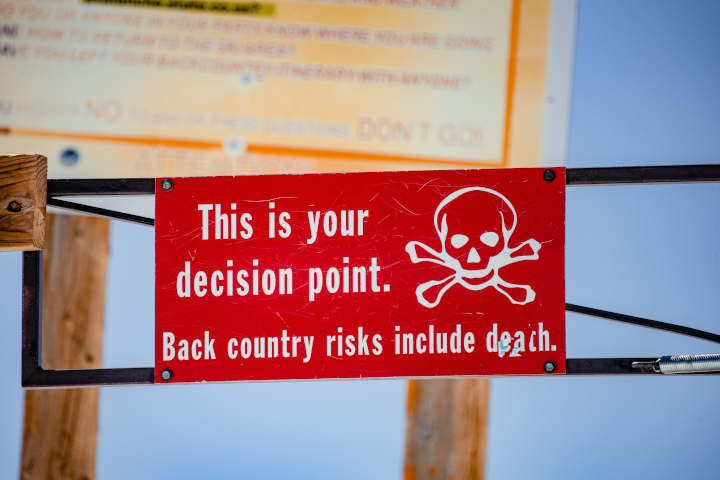Intelligence and good decision-making don’t always go together. Even the smartest people are capable of making some pretty foolish decisions.
Decision-making is another one of those things that should be taught in schools. It would probably prove to be a more useful skill than precalculus in the typical day of most people.
It only takes a few bad decisions to mess up your life if those decisions are critical enough. Think about the biggest challenges you’ve had in your life. Odds are that a wiser decision upstream could have avoided the whole mess.
Make a list of the worst decisions you’ve ever made.
Now imagine being able to go back in time and make a different choice. How much different would your life be now?
Consider these causes for making poor decisions:
Using Logic When It Isn’t Appropriate
Some decisions scream out for using logic:
Like, what route to take on vacation, what should I feed the 10 guests I’m expecting this weekend, or would it be better to buy brown or black shoes?
There are other times when logic isn’t appropriate. Choosing a career, buying artwork, deciding to have a baby, or choosing a partner are some examples where it might be better to follow your heart rather than your head.
For example, would anyone have a baby if logic were the only consideration?
Relying On Intuition When It Isn’t Appropriate
Sometimes it makes sense to follow your gut. Other times, it’s best to get all the facts you can. For example, trusting someone in a business transaction based on intuition alone isn’t always wise.
When the facts matter, gather all the facts you can.
In 2008, a study by scientists from the Max Planck Institute for Human Cognitive and Brain Sciences found that decision-making may be a process handled to a large extent by unconscious mental activity. Even several seconds before we consciously make a decision its outcome can be predicted from unconscious activity in the brain.
More than 20 years ago the American brain scientist Benjamin Libet found a brain signal, the so-called readiness-potential that happened a fraction of a second before a conscious decision. Libet’s experiments were highly controversial and sparked a huge debate.
Many scientists argued that if our decisions are prepared unconsciously by the brain, then our feeling of free will must be an illusion. In this view, it is the brain that makes the decision, not a person’s conscious mind.

Libet’s experiments were particularly controversial because he found only a brief time delay between brain activity and the conscious decision.
The 2008 study Max Planck Institute study showed how that brain activity predicts – even up to 7 seconds ahead of time – how a person is going to decide. But they also concluded that the study does not rule out free will.
Making Decisions Based On Short-term Comfort
Many poor decisions are made in haste to relieve stress. Unfortunately, these decisions often lead to far greater pain in the long run. For example, quitting your job suddenly because you can’t stand your boss is poor long-term thinking.
Incidentally, stress causes men and women to respond differently to risky decision making, with men charging ahead for small rewards and women taking their time, according to this 2011 study. Under stress, men and women also have different brain activation patterns during decision making.
Making Decisions Without Sufficient Information
To be expedient, some people make decisions too quickly. Take the time you need to learn everything you need to know to make a good choice. Don’t be afraid to ask for help from an expert if that would be helpful.
Of course, there are those times when you need to make decisions rapidly. Cognitive scientists have found that playing action video games trains people to make the right decisions faster.
Researchers discovered that video game players develop a heightened sensitivity to what is going on around them, and this benefit doesn’t just make them better at playing video games. It also improves a wide variety of general skills that can help with everyday activities like multitasking, driving, reading small print, and navigating around town.
Making Too Many Decisions
You make thousands of decisions every day. You choose the color of socks to wear, a route to work, your words during a conversation, how you spend your time, and so much more. You make a ton of decisions each hour.
Too many decisions reduce your ability to make decisions effectively. In fact, the more choices people have, the riskier the decisions they make, according to a 2013 British study.
Being Too Distracted
It’s hard to do anything well if your attention is elsewhere. There is no doubt that decision-making is a cognitive process that plays a central role in a range of daily life activities; it suggests a complex interplay among multiple processes that involve evaluating options and choosing a course of action.
Give your decisions the attention they require1. The more important the decisions, the more important it is to focus your attention on the matter at hand.
A poor decision can result in huge challenges. Good decisions lead to a happier, easier, and a more successful life.
- A. C. Hafenbrack, Z. Kinias, S. G. Barsade. Debiasing the Mind Through Meditation: Mindfulness and the Sunk-Cost Bias. Psychological Science, 2013; 25 (2): 369 ↩︎
Last Updated on October 1, 2022
